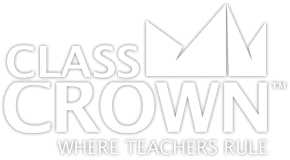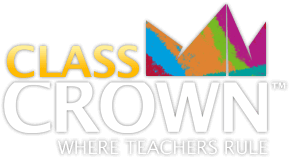
Amy is a bright student. She is quick-thinking, reads voraciously, pays attention in class, is diligent in her note-taking, and truly cares about learning. And yet, Amy’s grades do not reflect her potential. Her writing assignments, while not ill-conceived, are not well-edited and she rarely turns them in on time. Her test scores are lower than expected given her grasp of the material during class, so it just seems like she isn’t putting in the necessary time to master the material.
After discussing the gap between her potential and her actual performance, it becomes evident that Amy’s problem is one that many students struggle with: procrastination. As caring teachers, it is incredibly disheartening to see a student with great potential unable to perform to her highest abilities due to procrastination. But how do we help Amy?
The following is an exercise I have done with individual students (sometimes with the attendance of their parents), but it could also be done in small groups or even with an entire class. After all, we have all fallen victim to procrastination from time to time.
IDENTIFY THE WHY
The first step students should complete when tackling procrastination is determining why they are procrastinating. The reason this is helpful is because certain strategies for overcoming procrastination are more relevant depending on the cause. Students who are perfectionists will likely find certain strategies more effective than students who procrastinate because they don’t see how the work that needs to be done will help them meet their personal goals, for example.
Have the students brainstorm why they procrastinate. What are the circumstances that lead them to procrastinate? If they need help, provide the following list of possibilities, along with abbreviations for use in the next exercise:
- Perfectionistic tendencies (PT)
- Allowing too many distractions (AD)
- Unsure why the work matters (U)
- Overwhelmed (O)
- Afraid of failure or success (A)
- Unsure where to begin (UB)
- Too disorganized (DO)
- Feeling lazy (L)
- Feeling depressed or stressed (DS)
Next, have students list their top two to three reasons for procrastinating.
CHOOSE STRATEGIES TO OVERCOME
Now that your students have determined why they tend to procrastinate, they should peruse a list of potential strategies to use to overcome and decide which methods they think will be most effective for them.
Strategies for Overcoming Procrastination
| Strategy | Description | May Be Best for… |
|---|---|---|
| Create Specific Goals | Take a look at your timeline and create specific goals for what you need to get accomplished and by when. Chunk large tasks into smaller ones that seem more manageable. Link shorter-term goals with those that are long term ones. Review your goals often, even daily. | U, DO, L |
| Plan Your Time | Determine how long each task you need to accomplish will take you. Overestimate the amount of time tasks will take so as to make sure you do not get behind. Write tasks and time estimates in your calendar. | PT, AD, O, DO, L |
| 5-Minute Method | Sometimes the most difficult part is getting started. Determine to work on a task for 5 minutes. Once 5 minutes are completed, you can decide whether or not to keep going. Often you will have the inertia to keep on. | PT, AD, O, A, UB, DO, L, DS |
| Start Where You Want | If the natural place to start a project is what is keeping you from beginning, start at a less intimidating place. Example: you dislike writing the introductory paragraph of a paper, but you have a general outline and feel comfortable with the body paragraphs. Go ahead and start with those paragraphs. At least you will have begun and you might find the harder parts less intimidating once you’ve done a chunk of the work. | PT, O, UB |
| Use The In Between Time | You don’t necessarily need to have a huge chunk of time set aside in order to start or work on a task. If you have 10 minutes before you need to head out the door, don’t allow distractions to keep you from using those 10 minutes productively. You can work in the car, on the bus, waiting at the doctor, etc. That time will add up! | AD, L |
| Create an Effective Work Environment | If you tend to get distracted while working, create a distraction-free environment. Remove clutter, make a no phone/tv/internet rule for that area. Have everything you need at the ready so you don’t have to leave to get the things you need. | AD, DO, LP |
| De-stress | Take care of your mind and body first. Find what works for you – exercise, visualization, meditation, reading, music. | PT, O, A, DS |
| Celebrate your accomplishments | Reward yourself for meeting your goals, even those that are very short term. For example, if treating yourself to 10 minutes on the computer after working for 20 minutes motivates you, do it! But stick to the reward your promised yourself; don’t go beyond it. | AD, L |
| Get help | If you need help in order to move forward on a project, do not be afraid to reach out to teachers, parents, or friends. We all need help from time to time. It is the mark of a wise person to ask for help when needed. | PT, O, A |
| Imagine the future | Project ahead and imagine how you will feel if you get your work done. How will you be able to reward yourself? How will those around you reward you? Conversely, how will you feel if you don’t get your work done on time? What will the consequences be? Let the reality of each circumstance motivate you appropriately. | AD, U, L |
Have your students list the 3 strategies they think will work best for them and write a specific plan for putting them into action.
REASSESS REGULARLY
After an appropriate amount of time has passed (perhaps a week later), have students review their chosen strategies and write a reflection regarding their progress. If necessary, let them choose additional strategies or scrap those that aren’t working. Reassess on a regular basis until new habits have formed. Often students just need a chance to be intentional about their commitment to timeliness and good study habits in order to make progress.
Procrastination is one of many study skill issues that plague students and prohibit them from reaching their potential. Stay tuned for future study skills posts with ideas to motivate and inspire your students.

